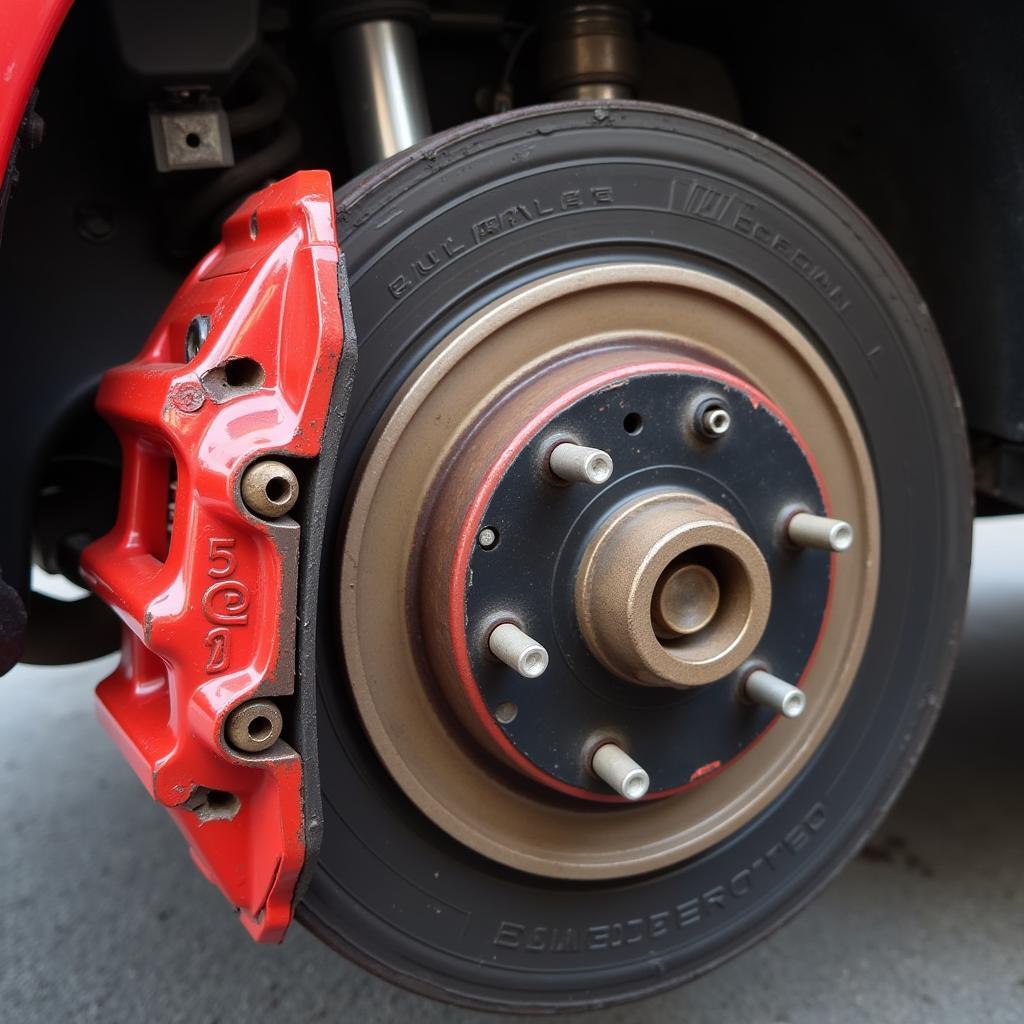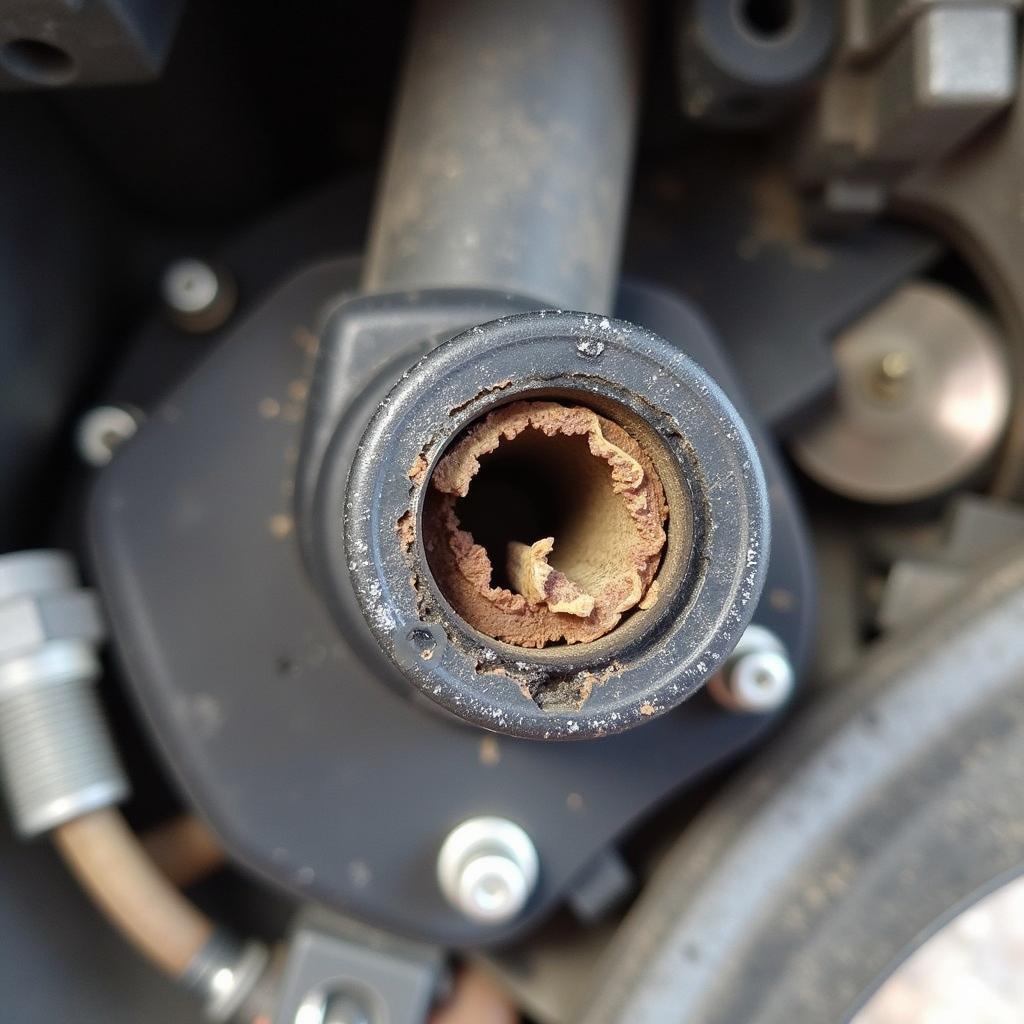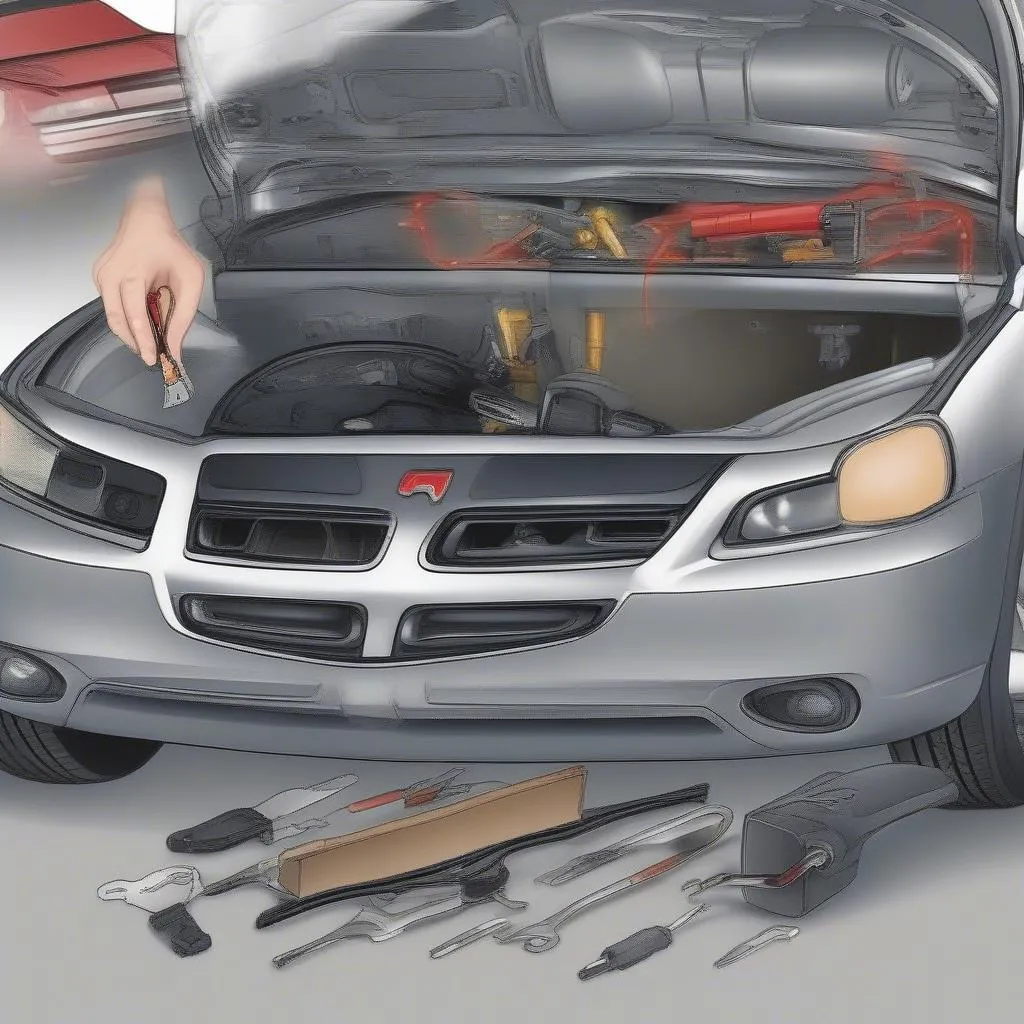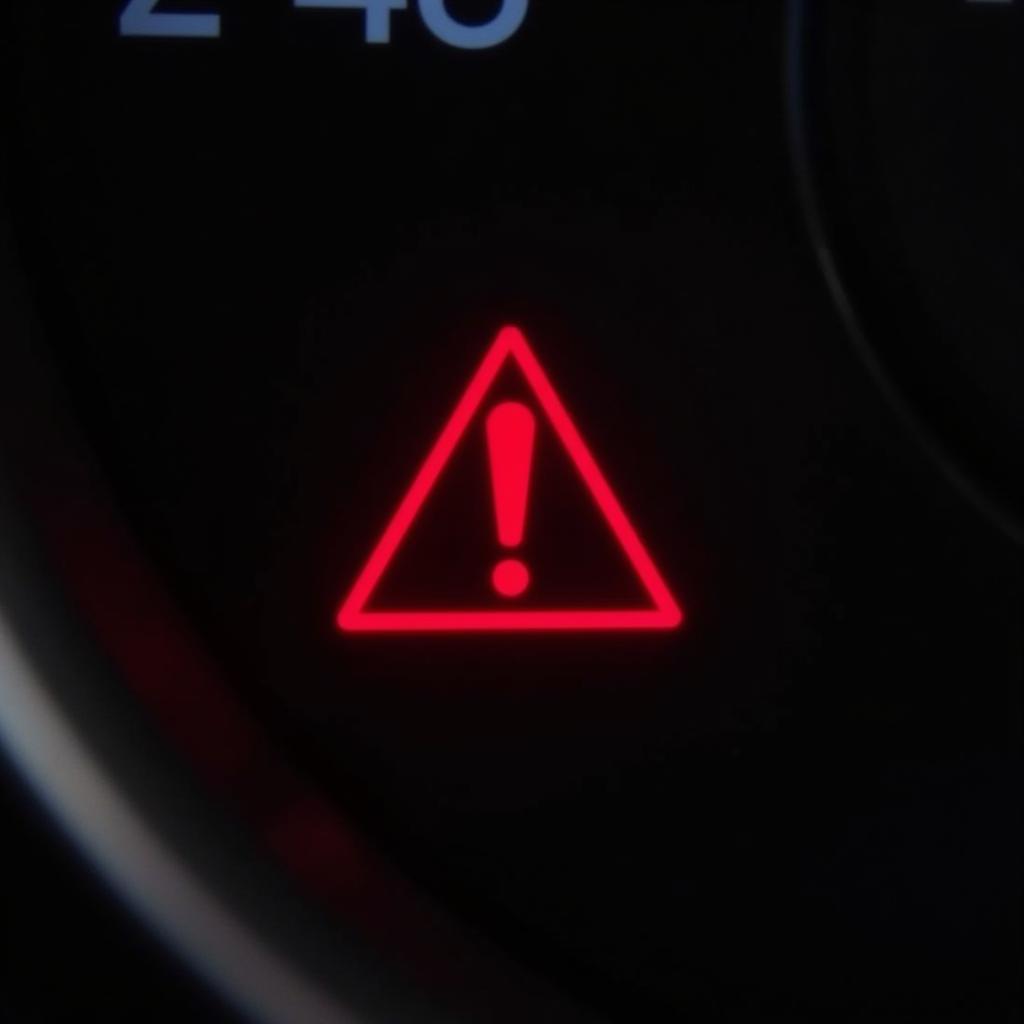The electronic park brake fail warning light is a dreaded sight for any driver. This light, often accompanied by a message on your dashboard, indicates a problem with your car’s parking brake system. While it might seem alarming, understanding the potential causes and solutions can help you address the issue effectively and safely.
Understanding Your Electronic Parking Brake System
Before we delve into the reasons behind the warning light, it’s essential to understand how electronic parking brakes work. Unlike traditional handbrakes, electronic systems utilize a button or switch to activate a small motor, also known as a caliper, that clamps onto the rear brake discs. This mechanism secures your vehicle, especially on inclines, preventing it from rolling.
Common Causes of the “Electronic Park Brake Fail” Warning Light
Several factors can trigger the electronic park brake fail warning light. Here are some of the most common culprits:
1. Worn Brake Pads or Rotors
Just like with your regular braking system, worn brake pads and rotors can impact your electronic parking brake. If your brake pads are excessively worn, the caliper might not be able to engage the rotor properly, triggering the warning light.
 Worn brake pads triggering electronic parking brake fail light
Worn brake pads triggering electronic parking brake fail light
2. Faulty Brake Caliper
The brake caliper is a crucial component of your electronic parking brake system. Over time, the caliper itself can malfunction due to wear and tear, corrosion, or a faulty motor. This malfunction prevents the caliper from applying the necessary force to engage the parking brake.
 Brake caliper malfunction leading to electronic park brake failure
Brake caliper malfunction leading to electronic park brake failure
3. Low Battery Voltage
Electronic systems in your car, including the electronic parking brake, require sufficient battery voltage to function correctly. If your car battery is weak or dying, it might not provide enough power to engage the parking brake motor, leading to the warning light.
4. Sensor Issues
Electronic parking brakes rely on various sensors to monitor their operation. A faulty or malfunctioning sensor, such as the brake pad wear sensor or the parking brake switch, can send incorrect signals to the car’s computer, resulting in the warning light illuminating.
 Faulty parking brake sensor triggering warning light
Faulty parking brake sensor triggering warning light
5. Software Glitches
Modern cars are heavily reliant on software. Like any software, glitches or errors can occur within the electronic parking brake system’s software. These glitches can disrupt communication between the parking brake components and the car’s computer, triggering the warning light.
Troubleshooting the Electronic Park Brake Fail Warning Light
If your electronic park brake fail warning light comes on, it’s essential not to ignore it. Here are some troubleshooting steps you can take:
-
Check Your Owner’s Manual: Your owner’s manual is an invaluable resource. It provides specific information about your car’s electronic parking brake system and might offer troubleshooting tips relevant to your vehicle model.
-
Inspect Your Brake Pads and Rotors: Visually examine your rear brake pads and rotors. If you notice significant wear or damage, it’s likely time for a replacement.
-
Check Your Car Battery: Ensure your car battery is in good condition and fully charged. A weak battery might need a jump-start or replacement.
-
Listen for Unusual Sounds: When applying or releasing the parking brake, listen for any grinding, clicking, or scraping sounds. These sounds can indicate a problem with the brake caliper or other mechanical components.
-
Seek Professional Diagnosis: If the warning light persists or you’re unable to identify the cause, it’s crucial to seek professional help. A qualified mechanic with experience in electronic car systems can accurately diagnose the issue using specialized diagnostic tools.
Remote Solutions and Programming
In some cases, the electronic park brake fail warning light might be caused by software-related issues. With advancements in automotive technology, remote diagnostics, programming, and software installations are becoming increasingly common.
Specialized technicians can remotely access your car’s computer system, diagnose the problem, and potentially resolve it by:
- Reprogramming the electronic parking brake module.
- Updating the software to the latest version.
- Clearing any fault codes stored in the system.
These remote solutions offer convenience and efficiency, saving you time and potentially costly repairs. However, it’s crucial to choose a reputable and trustworthy service provider with expertise in your car’s make and model.
Ignoring the Warning: Risks and Consequences
Ignoring the electronic park brake fail warning light can have serious consequences. Driving with a faulty parking brake system compromises your safety and the safety of others on the road.
Here are some potential risks of disregarding the warning:
-
Unintended Vehicle Roll: The primary function of a parking brake is to prevent your vehicle from rolling. If the system is faulty, your car might roll unexpectedly, especially on inclines, leading to accidents.
-
Damage to the Braking System: Continuing to drive with a malfunctioning electronic parking brake can exacerbate the issue, potentially damaging other components of your braking system. This damage can lead to more expensive repairs down the line.
-
Reduced Resale Value: A neglected warning light and a faulty parking brake can significantly reduce your car’s resale value. Potential buyers are wary of vehicles with unresolved mechanical issues, impacting your car’s desirability.
Conclusion
The electronic park brake fail warning light is a signal that should never be ignored. By understanding its potential causes, knowing how to troubleshoot basic issues, and seeking professional help when necessary, you can address the problem effectively, ensuring your safety and the longevity of your vehicle. Remember, regular maintenance and timely repairs are crucial for keeping your car’s electronic systems, including the parking brake, functioning optimally.


